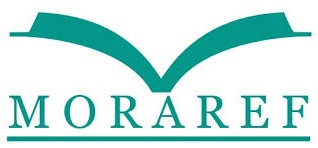Abdillah, A., & Novianto, R. (2019). The Quasi-Non-Governmental Organization (QUANGO) in the Indonesian state administration system: The Indonesian Ulema Council. Jurnal Hukum & Pembangunan, 49(1). https://doi.org/10.21143/jhp.vol49.no1.1913
Adinugraha, H. H. (2018). Halal tourism village: Concept and implementation in Indonesia. Human Falah, 5(1), 1-21. http://jurnal.uinsu.ac.id/index.php/humanfalah/article/view/1336
Al-Qaradawi, Y. (2013) The lawful and the prohibited in Islam. Mesir: Shoruuk International.
Amin, M. (2018). Halal fatwa as manifestation of the mission of Himayatul Ummah MUI. International Annual Conference on Fatwa MUI Studies in Depok, Jawa Barat, held on July 26 2018. http://www.halalmui.org/mui14/index.php/main/detil_page/138/24566.
Amin, M. (2011). Fatwas in the Islamic legal system. Jakarta, Indonesia: Elsas.
Andriani, D. K. K. (2015). Final report of the study on sharia tourism development. Jakarta: Deputi Bidang Pengembangan Kelembagaan Kepariwisataan.
Baharuddin, K., Kassim, N. A., Nordin, S. K., & Buyong, S. Z. (2015). Understanding the halal concept and the importance of information on halal food business needed by potential Malaysian entrepreneurs. International Journal of Academic Research in Business and Social Sciences 5(2), 170-180. https://doi.org/10.6007/ijarbss/v5-i2/1476
Battour, M., & Ismail, M. N. (2016). Halal tourism: Concepts, practises, challenges and future. Tourism Management Perspectives, 19, 150-154. https://doi.org/10.1016/j.tmp.2015.12.008
Bon, M., & Hussain, M. (2010). Halal. In N. Scott & J. Jafari (Eds.), Tourism in the Muslim world: Bridging tourism theory and practice (vol. 2, pp. 47-59). Bingley: Emerald Group Publishing Limited. https://doi.org/10.1108/S2042-1443(2010)0000002007
Breuer, L. E (2018) Realizing Indonesia's economic potential. Washington, DC: International Monetary Fund.
Carboni, M., Perelli, C., & Sistu, G. (2014). Is Islamic tourism a viable option for Tunisian tourism? Insights from Djerba. Tourism Management Perspectives, 11, 1-9. https://doi.org/10.1016/j.tmp.2014.02.002
Chang, P. R. (2007). Tourism management in the 21st century. New York: Nova Science Publishers, Inc.
Cholis, A. F., Hakim, L., & Pangestuti, E. (2019). Sharia tourism development strategy in natural recreation sites of Batu City, East Java. International Journal of Applied Sciences in Tourism and Events, 3(1), 24-37. http://doi.org/10.31940/ijaste.v3i1.1337
Committee Cooperation for Development (CCD). (2016). Muslim friendly tourism: Developing and marketing MFT products and services in the OIC member countries. Turki: COMCEC Coordination Office.
DinarStandard. (2018). State of the global Islamic economy report 2017-2018. https://www.flandersinvestmentandtrade.com/export/sites/trade/files/attachments/State%20of%20the%20Global%20Islamic%20Economy%202017-18.pdf
Eid, R., & El-Gohary. H. (2014). Muslim tourist perceived value in the hospitality and tourism industry. Journal of Travel Research, 54(6), 774-787. https://doi.org/10.1177/0047287514532367.
Elias, E. M., Othman, S. N., Yaacob, N. A., & Saifudin, A. M. (2016). A study of halal awareness and knowledge among entrepreneur undergraduates. International Journal of Supply Chain Management, 5(3), 147-152. https://ojs.excelingtech.co.uk/index.php/IJSCM/article/view/1239.
Fahham, A. M. (2017). The challenge of developing halal tourism in Nusa Tenggara Barat. Jurnal Masalah-Masalah Sosial 8(1), 65-79. https://jurnal.dpr.go.id/index.php/aspirasi/article/view/1258
Fariana, A. (2017). The importance of the mui fatwa in the development of the Islamic economic legal system in Indonesia. Al-Ihkam, 12(1), 87. https://doi.org/10.19105/alihkam.v12i1.1191
Fateh, M. (2018). Konstruksi filosofis fatwa DSN-MUI [The philosophical construction of DSI-MUI fatwa]. Jurnal Hukum Islam, 16(2), 155-171. https://doi.org/10.28918/jhi.v16i2.1736
Goeldner, C. R., & Ritchie, J. R. B. (2012). Tourism: principles, practices, philosophies (12th ed.). Hoboken, NJ: John Wiley & Sons, Inc.
Habibaty, D. M. (2017). The role of the fatwa of the National Sharia Council of the Indonesian Ulema Council on Indonesian positive law. Jurnal Legislasi Indonesia, 14(4), 447-453. https://e-jurnal.peraturan.go.id/index.php/jli/article/view/125
Hudson, S. (2008). Tourism and hospitality marketing: A global perspective. London, UK: Sage Publications Ltd.
International Trade Centre (ITC). (2015). From niche to mainstream halal goes global. Geneva: The International Trade Centre.
Isa, S. M., Chin, P. N., & Mohammed, N. U. (2018). Muslim tourist perceived value: A study on Malaysia halal tourism. Journal of Islamic Marketing, 9(2), 19. https://doi.org/10.1108/JIMA-11-2016-0083
Islam, M. A., & Karkkainen, L. (2013). Islamic tourism as a prosperous phenomenon in Lapland (Master Thesis, Rovaniemi University of Applied Sciences). https://www.theseus.fi/bitstream/handle/10024/65659/Thesis_Aminul_Laura.pdf
Johar, A. F. (2019). The legal strength of the fatwa of the Indonesian Ulema Council (MUI) from the perspective of the legislation in Indonesia. http://pa-negarakalsel.go.id/images/images/PDF/Kekuatan_Hukum_Fatwa_Majelis_Ulama_Indonesia.pdf.
Kamali, M. H. (2011). Tourism and the halal industry: A global shariah perspective. ICR Journal, 3(3), 456-473. https://icrjournal.org/index.php/icr/article/view/532
Kettani, H. (2010). Muslim population in Asia: 1950-2020. International Journal of Environmental Science and Development, 1(2), 143-153. http://ijesd.org/papers/28-D437.pdf.
Kettani, H. (2014). The world Muslim population: History & prospect. Singapore: Research Publishing.
Lickorish, L. J., & Carson, L. J. (1997). An introduction to tourism. London: Butterworth-Heinemann.
Lindsey, T. (2012). Monopolising Islam: The Indonesian Ulama Council (IUC) and state regulation of the Islamic economy. Journal Bulletin of Indonesian Economic Studies, 48(2), 253-274. https://doi.org/10.1080/00074918.2012.694157.
Ma'mur, J. (2018). The role of the MUI fatwa in the nation and state: Talfiq Manhaji as a methodology for determining the MUI fatwa. Wahana Akademika, 5(2), 41-52. https://doi.org/10.21580/wa.v5i2.3226
Mansouri, S. (2014). Role of halal tourism ideology in destination competitiveness: A study on selected hotels in Bangkok, Thailand. Proceedings International Conference on Law, Education and Humanities (ICLEH'14), Pattaya, Thailand, 30-31-January (pp. 20-23). http://icehm.org/upload/9944ED0114528.pdf
Mohsin, A., Ramli, N., & Alkhulayfi, B. A. (2016). Halal tourism: Emerging opportunities. Tourism Management Perspectives, 19, 137-143. https://doi.org/10.1016/j.tmp.2015.12.010
Muhamad, N., Sulaiman, S., Akmaliah, K. A., & Said, M. F. (2017). Halal tourism: Literature synthesis and direction for future research. E-Proceeding International Halal Management Conference (IHMC), Sejong University, Korea Selatan, 17-18 Agustus (pp. 1-13). http://psasir.upm.edu.my/id/eprint/75416/
Mulyati, M. (2019). MUI's contribution to the development and application of Islamic law in Indonesia. Al-Mashlahah: Jurnal Hukum dan Pranata Sosial Islam, 7(1), 83-100. http://dx.doi.org/10.30868/am.v7i01.547
Namin A. A, T. (2012). Islam and tourism: A review on Iran and Malaysia. International Research Journal of Applied and Basic Sciences, 3, 2809-2814.
Pamukcu, H., & & Arpaci, O. (2016). A new trend in the Turkish tourism industry: Halal tourism. In: C.Avcikurt, M.S.Dinu, N.Hacioglu, R.Efe, A.Soykan & N.Tetik (Eds.), Global issues and trends in tourism. Turki: ST. Kliment Ohridski University Presssofia.
Pew Research Center - Forum on Religion & Public Life (PRC-FRPL). (2011). The future global Muslim population projections for 2010-2030. Washington, DC: Pew Research Center.
Pradesyah, R. & Khairunnisa, A. (2018). Analysis of the application of the MUI fatwa on halal tourism: A case study of the Medan Syariah hotel. Intiqad: Jurnal Agama dan Pendidikan Islam, 10(2), 334-348. https://doi.org/10.30596/intiqad.v10i2.1986
Priyadi, U. P. (2016). Islamic tourism prospects and developments. Yogyakarta, Indonesia: UPP STIM YKPN.
Saleh, R., & Anisha, N. (2019). Halal tourism in Aceh: Ideas and realities on the ground. Sahafa Journal of islamic Comunication, 1(2), 81-92. http://dx.doi.org/10.21111/sjic.v1i2.2849
Sanad, H. S., Kassem, A. M., & Scott. (2010). Bridging tourism theory and practice. In: J. Scott & J. Jafari (Eds.), Tourism and Islamic law (pp. 17-30). Amerika Serikat: Emerald Group Publishing Limited. https://doi.org/10.1108/S2042-1443(2010)0000002030
Setiyanto, D. A. (2018). Fatwa as social engineering media: Analysis of MUI fatwa in post-reform family law. Al-Ahkam, 3(1), 85-106. https://ejournal.iainsurakarta.ac.id/index.php/alahkam/article/view/1342
Suharko, S., Khoiriati, S. D., Krinajaya, I. M., & Dinarto, D. (2018). Institutional conformance of halal certification organisation in halal tourism industry: The cases of Indonesia and Thailand. Tourism Review, 66(3), 334-348. https://hrcak.srce.hr/206165
Tawil, N. M., Ramlee, S., Jaafar, J., & Saat, F. M. (2015). An overview of foodpreneur awareness among small and medium-sized enterprises (SME) of halal certification. Asian Social Science, 11(21), 91-94. https://doi.org/10.5539/ass.v11n21p91
Theobald, W. F. (2005). Global tourism (3rd ed.). Amerika Serikat: Elsevier-Science.
Wahyudi, H. F., & Fajar, F. (2018). The Ijtihad method of the fatwa commission of the Indonesian Ulema Council and its application in the fatwa. Cakrawala: Jurnal Studi Islam, 13(2), 120-133. https://doi.org/10.31603/cakrawala.v13i2.2402
Yusoff, S. Z., & Adzharuddin, N. A (2017). Factor of awareness in searching and sharing of halal food product among Muslim families in Malaysia. Proceedings. SHS Web of Conferences 33 i-COME'16, Kuala Lumpur, 18-20 Malaysia. https://doi.org/10.1051/shsconf/20173300075
Vulcan Post. (2019). The Muslim travel market is growing, but where are its unicorns? https://vulcanpost.com/654890/muslim-travel-market-unicorn/
 (Universitas Nurul Jadid)
(Universitas Nurul Jadid) 








.png)









